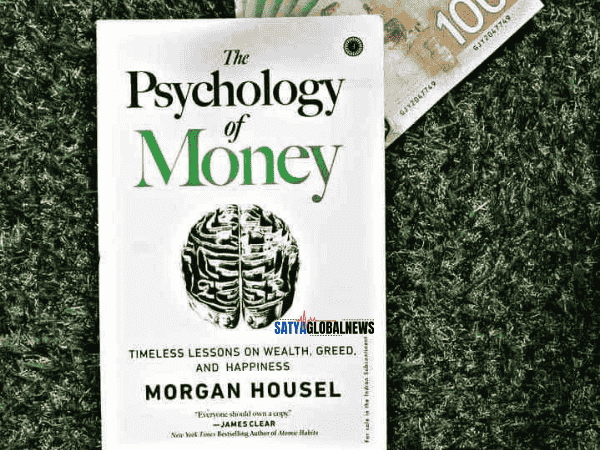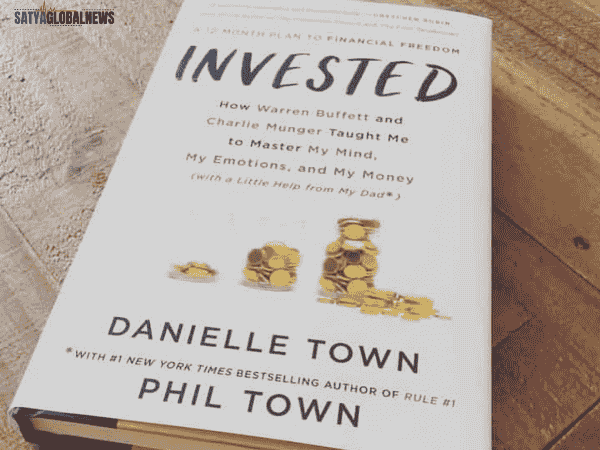The Psychology of Money: Timeless Lessons on Wealth, Greed, and Happiness

THE PSYCHOLOGY OF MONEY:–The Psychology of Money by Morgan Housel is a book that explores how people think about money, wealth, and financial decision-making. Instead of focusing on technical investment strategies, it delves into the emotional and psychological factors that influence our financial choices.

Key Takeaways from the Book:
- Wealth is More About Behavior Than Knowledge
- Financial success isn’t necessarily about intelligence but about how you manage money, control emotions, and make decisions over time.
- Compounding is the Key to Wealth
- Small, consistent investments can lead to massive growth over time due to the power of compounding.
- Patience is crucial—long-term thinking beats short-term gains.
- Luck vs. Risk
- Success in investing and wealth-building often involves both luck and risk.
- Don’t blindly copy successful people without considering their unique circumstances.
- The Power of Saving
- Being wealthy isn’t about how much you earn but how much you save and invest.
- Living below your means provides flexibility and freedom.
- The Importance of Financial Independence
- Money should be used to buy control over your time and decisions, rather than just material things.
- True wealth is having the ability to wake up and do what you want, when you want.
- Avoid Lifestyle Inflation
- Many people increase their spending as they earn more, keeping them trapped in a cycle of financial stress.
- The key is to resist unnecessary lifestyle upgrades and focus on financial security.
- The Market is Unpredictable
- Trying to time the market is often a losing game.
- Consistency and long-term investing usually lead to better outcomes.
- Personal Finance is Personal
- There’s no universal right way to manage money; different strategies work for different people based on their goals, risk tolerance, and personal values.
Readmore:-“10 Digital Marketing Skills Made Simple for Everyone”
Would you like a deeper dive into any of these lessons? Or are you looking for a summary in a specific format?
” THE PSYCHOLOGY OF MONEY ”

1. Money is a tool.It’s not an end in itself.
2. Don't let your emotions control your spending.Be mindful of the emotions that can drive you to overspend and learn to control them.
3. Invest for the long term.The stock market will go up and down in the short term, but over the long term, it goes up.
4. Don't try to time the market.No one can predict the future, so don’t try to guess when to buy and sell stocks.
5. Diversify your investments.Don’t put all your eggs in one basket. Spread your money across different asset classes to reduce your risk.
6. Don't be afraid to take risks.But don’t be reckless, either.
7. Pay yourself first.Make sure you save money for your future before you spend it on anything else.
8. Live below your means.The less you spend, the more money you’ll have to save and invest.
9. Don't compare yourself to others.Everyone is on their own journey. Focus on your own financial goals, and don’t worry about what others have.
10. Be patient.Building wealth takes time. Don’t expect to get rich quickly.
11. Be grateful.Appreciate what you have, both in terms of your financial situation and in your life in general.
12. Help others.One of the best ways to feel good about your money is to use it to help others.
13. Be kind to yourself.Everyone makes mistakes. Don’t beat yourself up if you make a financial mistake. Just learn from it and move on.
14. Never give up.The road to financial independence is long and winding, but it’s worth it. Keep working hard and never give up on your goals.
15. Money can't buy happiness.But it can buy peace of mind and security.
The Psychology of Money is a book about the emotional side of money. It’s about how our feelings about money can lead us to make bad decisions. It’s also about how to overcome these emotional biases and make better financial decisions.
I hope you find these lessons helpful.






